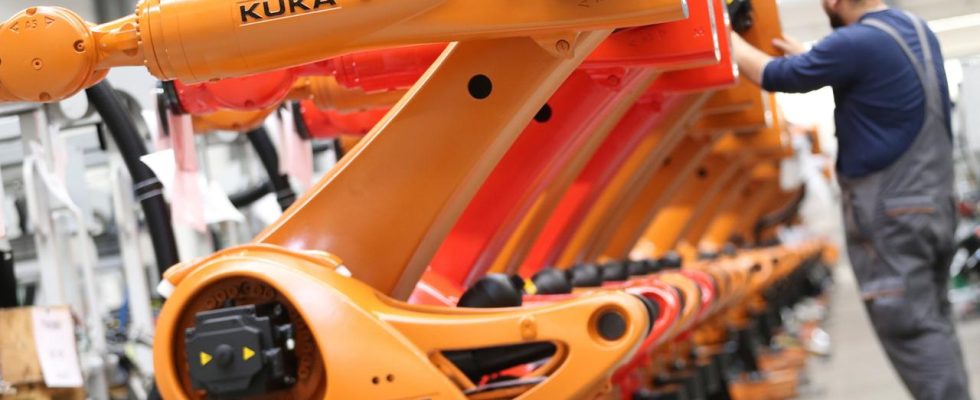The robot manufacturer Kuka achieved record incoming orders in 2022. Demand is particularly high in China. The company has been in Chinese hands since 2016 and even completely since 2022.
At almost 4.5 billion euros, the Augsburg-based robot manufacturer Kuka recorded higher incoming orders than ever before in the almost 125-year history of the company. In addition to this record, the company increased sales by almost a fifth and almost doubled its profit. The company announced that all areas had contributed to this.
Regionally, demand is particularly high in China: “China in particular is an important growth market, we generate around a quarter of our sales there,” said Peter Mohnen, CEO of KUKA AG. “Even if high prices, a tense supply chain situation and strong competition will also accompany us in 2023, we started the new financial year with a very good first quarter.”
Kuka completely Chinese since 2022
Kuka was founded in 1898. The company name is made up of the initials of the founders Josef Keller and Jakob Knappich, Keller and Knappich Augsburg.
According to Kuka, it is one of the world’s leading providers of automation solutions with around 15,000 employees and more than 40 locations worldwide. In 2016, the Chinese Midea Group took over the robot manufacturer. Five years later, Kuka had disappeared from the price lists of German stock exchanges.
Kuka became 100 percent Chinese last November: On November 8, 2022, Kuka’s minority shareholders were compensated and their almost five percent stake transferred to Guangdong Midea Electric Co., Ltd. transfer. The resolution to transfer the remaining shares was passed at the Annual General Meeting in May 2022. Augsburg will remain the company’s headquarters until 2025, and no jobs may be cut until then.
Too expensive for Siemens
However, the future of Kuka could have remained in German hands: Siemens was also being discussed as a takeover partner. However, the price of four billion euros was too high for the Munich company. Even then, politicians were demanding that Kuka remain in German hands and that the sale of key technologies should be avoided.
The discussion about the sale of German companies or critical infrastructure abroad flared up again recently: in the dispute whether a Chinese shipping company should be allowed to enter the Hamburg container terminal. On the one hand, the criticism is directed at the sale and, on the other hand, at the fact that German companies could not invest to the same extent in Chinese critical infrastructure companies.
At the same time, Economics Minister Robert Habeck (Greens) made it clear that he wanted to avoid one-sided dependencies – for example with important raw materials – and to open up new markets. Parts of the SPD warn of an “anti-China” strategy. Companies warn of “China bashing”. The chemical group BASF wants to cut jobs in Germany and invest heavily in China. While chemical production in Europe is declining, the market in China is growing. BASF therefore still wants to invest up to ten billion euros in China.

